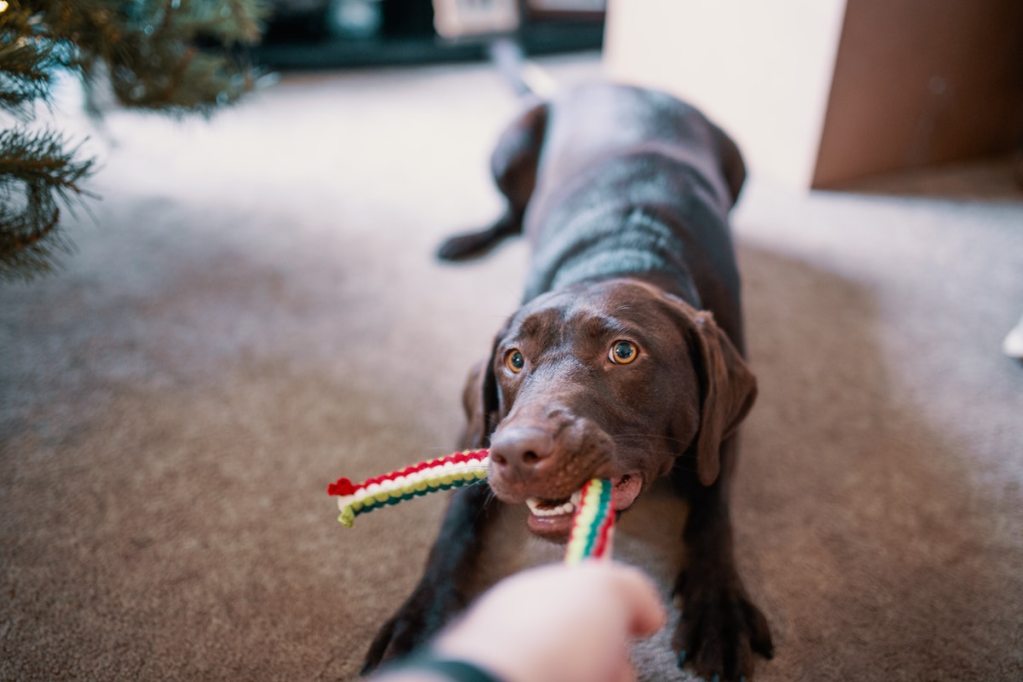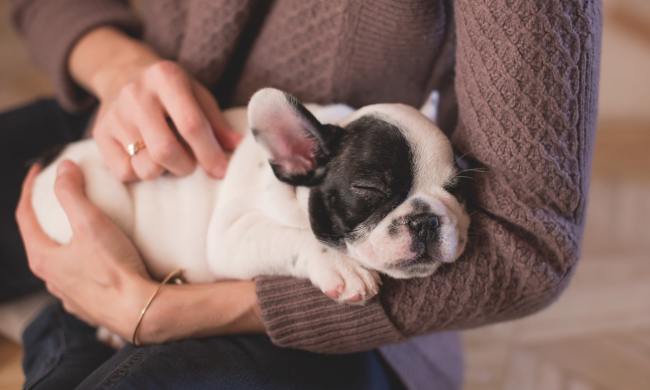When you think about an apartment-dwelling dog, you likely think of a toy or small breed. Chihuahuas, French bulldogs, Maltese, and Pomeranians are often seen walking out of high-rises and suburban rentals. There are valid reasons for this stereotype. Unlike big dog breeds, smaller pups typically don’t need as much exercise (physical activity is important for dogs, regardless of their size, though). Practically, smaller dogs take up less room.
However, don’t count out a larger dog if you live in an apartment. With the right situation, some big dog breeds may even be better roommates in an apartment than their smaller peers. Before welcoming a larger dog into your smaller space, here’s what to know about the best big dogs for apartments.
Big dog breeds that can live in apartments

Size isn’t a deal breaker regarding apartment living and dog parenthood. In fact, some smaller breeds, like Jack Russell terriers, have so much energy they often don’t do well in small spaces. These big dog breeds may be strong candidates to live in an apartment with you:
- Labradors. These lovable lugs have a gentle personality, are highly adaptable, and are typically easy to train and housebreak.
- Mastiffs. Calm and loyal, mastiffs make good roommates and neighbors as long as they get regular walks.
- Great Danes. This one may surprise you, but the Great Dane’s even-tempered nature makes them ideal apartment pets.
- Golden retrievers. Like Labs, this breed is usually friendly and adaptable — neighbors and landlords will approve.
What to do before bringing a larger dog into an apartment

Before choosing a large dog — or any pet, really — you’ll want to make some considerations. Ask yourself these two important questions.
How much time can I dedicate to exercising the dog?
Without a backyard, you’ll need to put a little more effort into ensuring your dog gets outside and meets their exercise needs. It’s not an impossible task, though. Some big dog breeds, like Labs, make great running buddies. If you have a dog park nearby, that can double as a backyard, provided your pet plays well with others. Be honest with yourself and shelter/rescue/breeders about your ability to exercise your dog to ensure you go home with the right pet.
Does my landlord or complex have size restrictions?
Read the fine print in your lease. Some complexes and landlords don’t allow dogs over a certain size. Unfortunately, breed restrictions also still exist, and some apartments may not allow pets at all. Double-check to ensure your pet can move in with you. Many shelters and rescues will ask for a number to confirm your pet is permitted.
Should I get a big dog if I live in an apartment?

It’s not just about getting out and walking with your beastie, though. You also need their home life to suit them well. Some dogs, such as Newfoundlands, are prone to hip problems, so they may prefer a place with only one story. These and other exceptionally big dogs need space inside to stay comfortable,e too. A dog that’s constantly bumping into things or squeezing down hallways won’t thrive.
Choose an open floor plan or a similar setup that works well for your particular animal. Even with all these thoughts in mind, a few big dogs won’t ever do well in small spaces. It’s hard to keep a husky, German shepherd, or border collie in a one-bedroom space, no matter how often you walk them.
Size isn’t the only factor in choosing a dog, even if you live in an apartment. Sometimes, small dogs are automatically considered better fits. However, some high-energy small breeds actually may not do as well as larger, more go-with-the-flow pets. Before bringing a pet home, take a look at your lease. Some rentals have restrictions on size, number of pets, and breeds. You always want to make sure your pet is welcome in your home.




